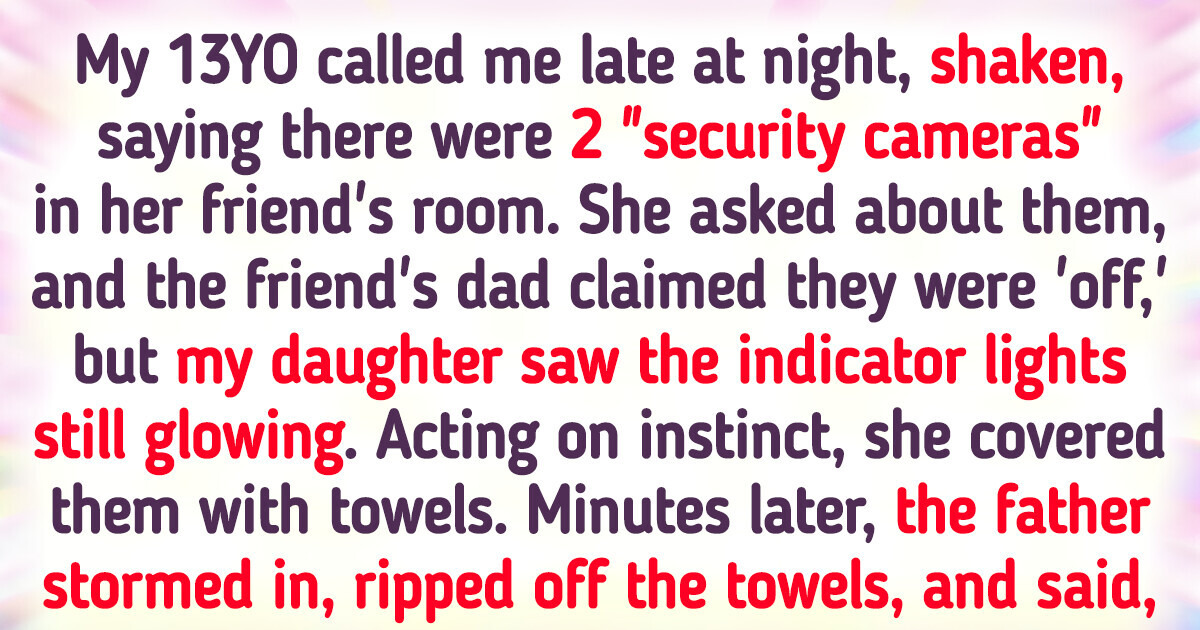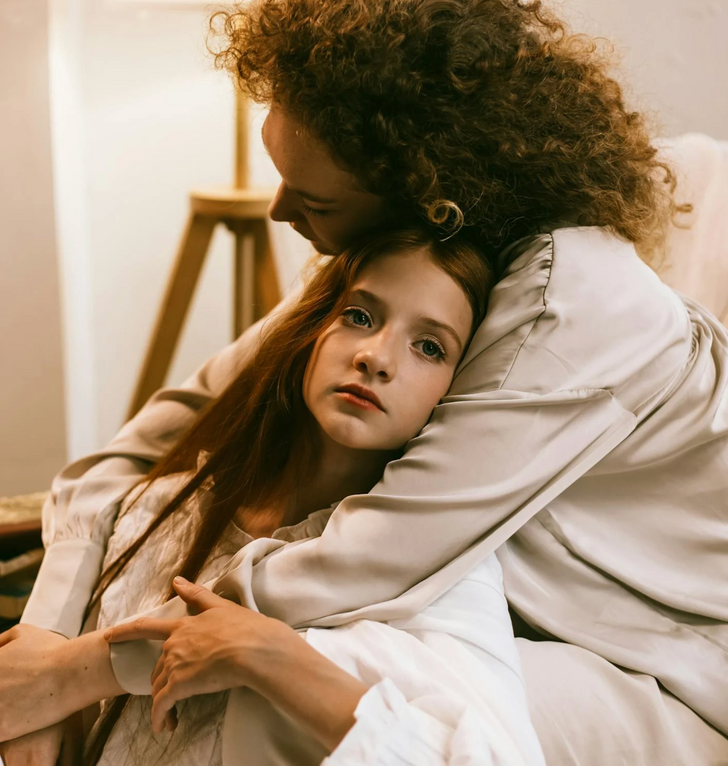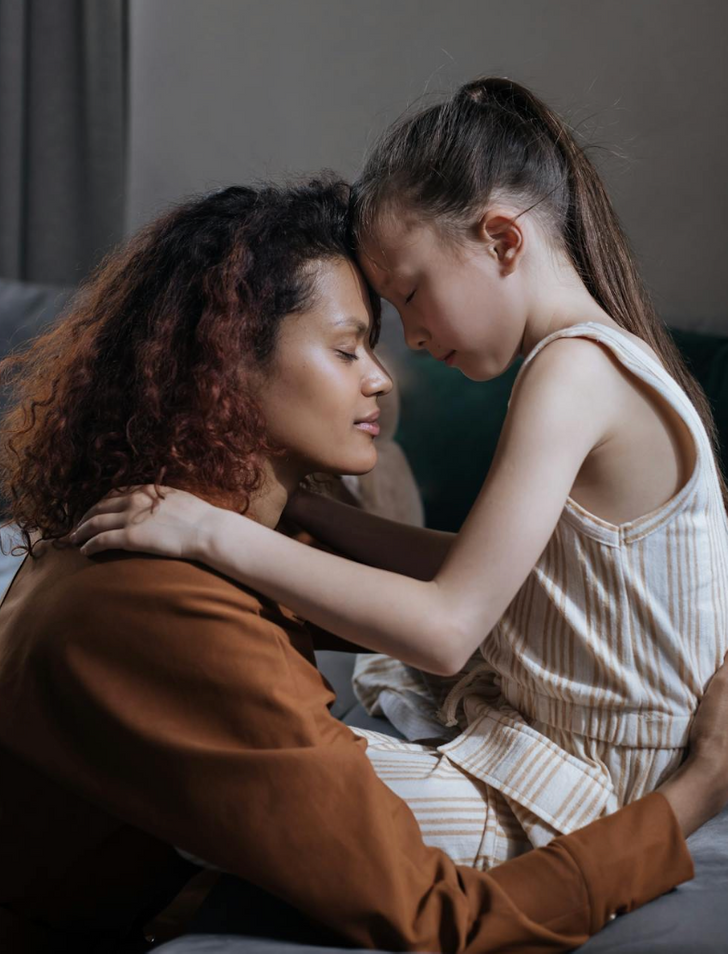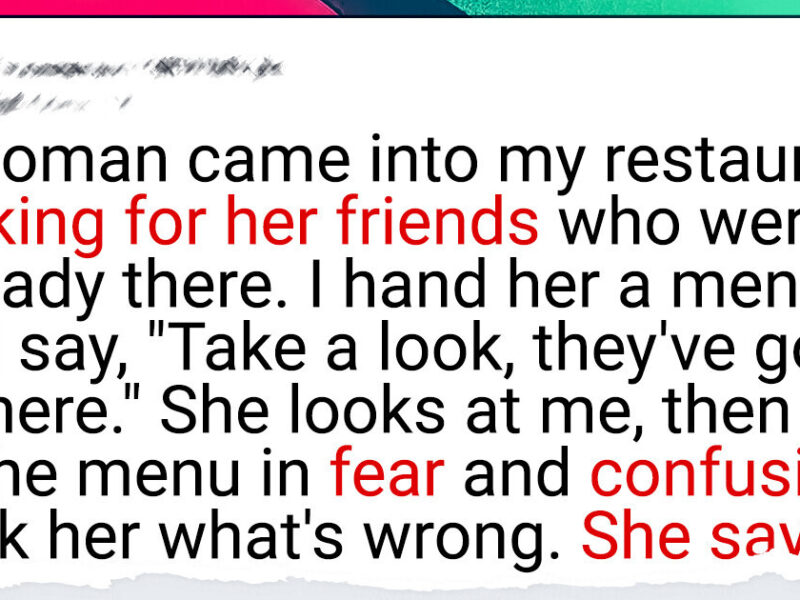My Teenage Daughter Went to Her Friend’s for a Sleepover— I Felt Like I Should Involve the Police / Bright Side
Sometimes, children can teach us the most valuable lessons about listening to our instincts and prioritizing our safety. In a heartfelt letter to Bright Side, a concerned mother shared an unsettling experience her 13-year-old daughter, Rosa, faced during a sleepover at a friend’s house. What began as a fun evening quickly turned into a moment of unease.
Here’s her letter:

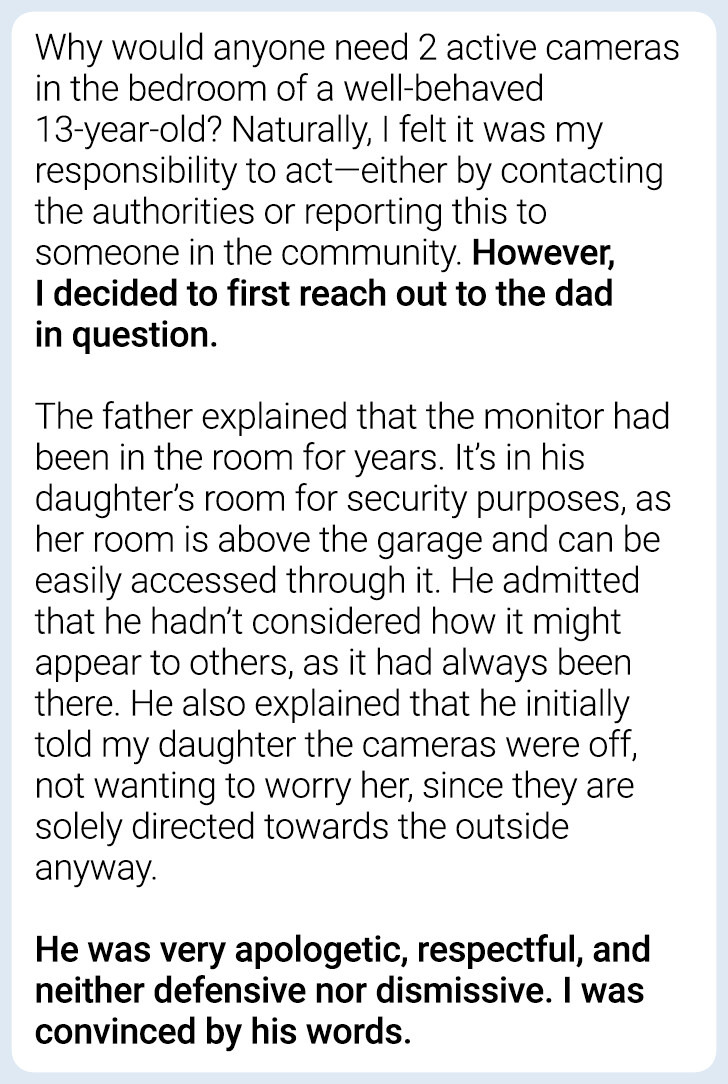
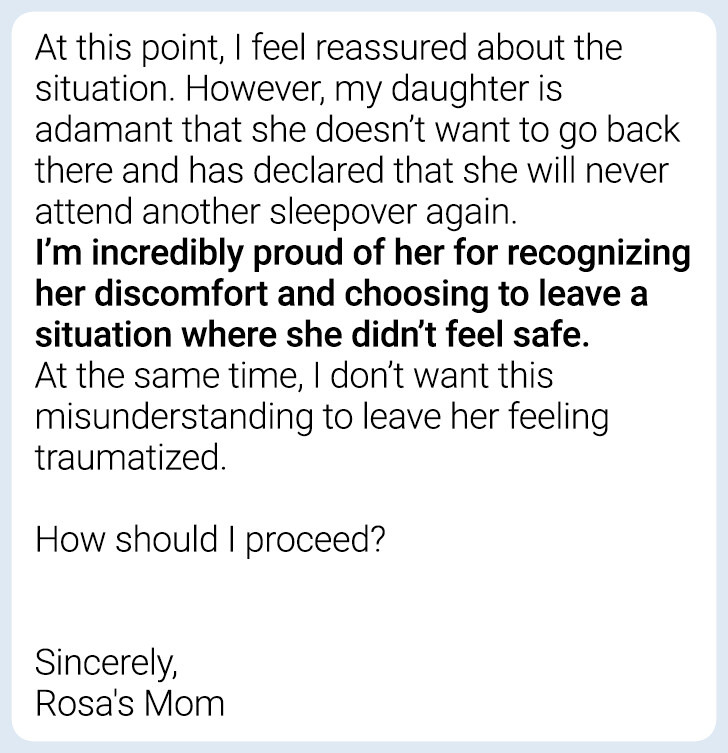
Thank you for sharing your story with us. We’ve put together five pieces of advice to help you navigate this situation with your daughter, ensuring she feels secure, empowered, and supported while remaining confident in trusting her instincts in the future.
Validate Her Boundaries and Choices
Begin by commending Rosa for her instincts and bravery. Let her know that trusting her feelings in uncomfortable situations is an incredible strength and a sign of maturity. Reassure her that it’s perfectly okay to set boundaries, such as deciding not to attend future sleepovers, and that you support her decisions.
Share your perspective: while you’re reassured by the father’s explanation, her feelings and experiences matter most. Offer to create alternative ways for her to stay connected with her friends, like day visits or inviting them over, so she feels in control of her social interactions.
Demystify the Event
Help Rosa understand the situation by framing it as an honest misunderstanding rather than something sinister. Discuss how different households have different rules and setups, like the security cameras, which may seem strange but serve specific purposes. Use this as a teaching moment about how assumptions can shape feelings and decisions.
Emphasize that her response was valid given the information she had, and she did the right thing by leaving and calling you. Reassuring her in this way may help reduce any lingering unease or mistrust while encouraging her to stay open to new experiences.
Empower Her with Knowledge and Tools
Talk to Rosa about personal safety and the importance of trust in any environment. Share tips for recognizing red flags in social settings while also learning to discern when something might be harmless, as this situation turned out to be. Role-play potential scenarios so she feels equipped to navigate tricky situations in the future without becoming overly fearful.
Remind her that leaving when she felt uneasy and calling you for support were exactly the right steps. Providing these tools can help rebuild her confidence in navigating similar events.
Explore Her Emotions and Future Decisions
Sit down with Rosa to talk openly about how the event made her feel and why she’s hesitant about future sleepovers. Acknowledge her right to feel shaken and explain that processing emotions after a scary event takes time. If she’s open to it, discuss ways to rebuild her confidence, such as trialing smaller steps, like having a friend stay at your house or going to a sleepover but asking you to pick her up before bedtime.
Emphasize that she’s not obligated to go back to that friend’s house or any other sleepover if it makes her uncomfortable. Let her lead the process of deciding what feels safe for her.
Reframe the Experience Positively
Highlight Rosa’s ability to assess and respond to an unexpected situation as a significant strength. Frame the incident as a learning experience that tested her instincts and judgment, which she passed with flying colors. Suggest viewing this as an opportunity to develop even more skills for handling new or uncertain situations.
Focus on her bravery in trusting her feelings and reaching out for help, which are important life skills. By emphasizing her agency and growth, you can help her see this as an empowering moment rather than a traumatic one.
Parents often remain protective of their children, regardless of their age—and that’s no surprise. Recently, a mother of an adult son found herself in a situation where she believed her son was in danger. Acting out of concern, she contacted the authorities, only to later realize the serious consequences of her actions. Here’s the letter she shared with us.
